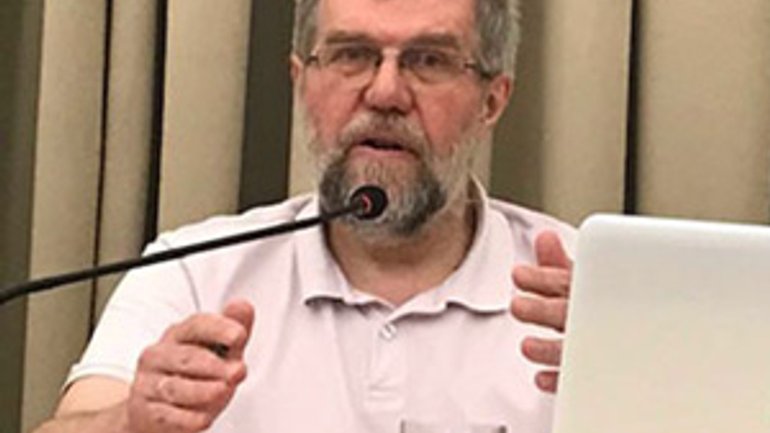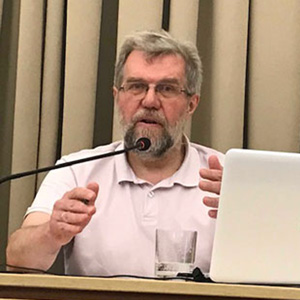
Archpriest. Father of the home Church. Dreaming of the Unity of Christ's Church. Professor of the Ukrainian Catholic University in Lviv. Contributor of the video channel "Christian or bandit?".

 «Human dignity. Who will help us to be Christians in modern Europe?» - was the final theme of discussion at the European Parish Colloquium in Lviv. I had the privilege of presenting the report on this theme.
«Human dignity. Who will help us to be Christians in modern Europe?» - was the final theme of discussion at the European Parish Colloquium in Lviv. I had the privilege of presenting the report on this theme.
Active laity today, such as those who arrived to Lviv at the 30th Colloquium of European Parishes, should help the modern world re-feel the positive impact of the Gospel wisdom.
In the life of a post-modern Christian two things are priority: the testimony of Gospel love and respect for human dignity. We find these values in the question: "In what way should modern Christians to testify Christ's love?"
The Gospel contains a unique key, which operates in different epochs and in different cultures. In the parable of the prodigal son there are three protagonists and in the story of each of them we can take something for ourselves. It is important to show that these ancient stories are useful for the evangelization of Europe in the 21st century. We, the active Christians, must help the modern world once again feel the positive influence of biblical wisdom.
The Gospel needs to be re-inculturated for post-modern Europe. From the story of the prodigal son, we see how important are the cultural characteristics of the time in which the action takes place.
In the book "Christians in Europe," written by Kurt Koch 25 years ago in 1993, the author proposes three important steps that will make the Gospel more understandable for a modern Europe:
1. Our first step is to deal with the problems that exist in European societies. There is no center that imposes certain values on people. Problems arise when values are interpreted unclearly. One of the important challenges of a post-modern Christian is the ability to clearly distinguish truth from untruth.
Freedom is a typical feature of modern society. Christ gave freedom to every person through his personal sacrifice.
2. Our second step is to understand when there is a problem, then there is a way to cure it. European Christians in ourdays have a task to find ways to treat social problems.
Ordinary believers are called to return lost values to the public space. The cultivation of primitive human values is not the decisive task of the Christian faith in the post-modern world. A Christian in the post-modern world must restore contact with God, which will be an antidote to the depreciation of values.
3. Our third step is to think about the future, after realizing the problems and starting their treatment. Christians must constantly work on the vision of the future.
Also, we should not idealize the state of post-modern Europe. Obvious are the problems of spirituality, worldview, values that are in the Old World.
The evil of egoism lies in the desire of the individual to attribute to himself unconditional value, and at the same time unfairly deny others in this value.
Only a close connection with God, rather than abstract ethical considerations, can help Christians in following their own responsibilities of the disciples of Christ and in promoting the spread of the Christian faith in Europe.